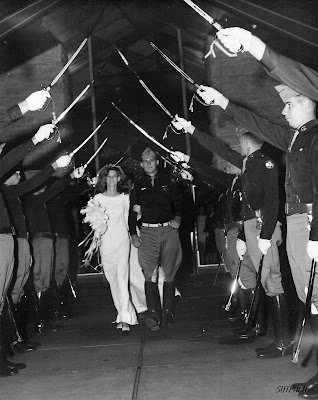"As I walked out of the doctor's office, Ben's little hand wrapped around my finger. I had three options: ignore Ben's autism, accept it, or fight it. I chose to fight it."
Each year thousands of children are diagnosed with autism, a devastating neurological disorder that profoundly affects a person's language and social development.
In his critically acclaimed book,
Saving Ben: A Father's Story of Autism, Dan E. Burns reveals how his family has coped with this disorder.

Today he offers his five tips for raising a child with autism:
December 7, my birthday, is the nineteenth anniversary of Ben’s diagnosis.
His pediatric neurologist said, “Autism is a lifelong, irreversible condition. It is genetic. There is no medical treatment. Save your money for his institutionalization when he turns twenty-one.”
As I walked out of the doctor’s office, Ben’s little hand wrapped around my finger. I had three options: ignore Ben’s autism, accept it, or fight it. I chose to fight it. Here’s what I wish I knew on that cold December day in 1990.
1. Autism is not a hard-wired brain disorder. It is an ongoing, biological multi-system illness. The systems involved are the gut, the immune system, and the central nervous system. Severe colic, chronic ear infections, no eye contact, loss of language and social withdrawal are all part of the same disease, a vicious cycle where one system failure triggers another.
2. Autism is treatable and in some cases reversible. Even in the primitive era when Ben was diagnosed, Dr. Ivor Lovaas was restoring health to nearly half the kids in his experimental group using intensive behavioral therapy. Not all kids recover. Ben didn’t, though he improved. But today, with the addition of modern biomedical treatments, the odds are in your favor if you start early and stick with it. Remove the toxins, rebalance the metabolism, and repair the damaged systems. Find a Defeat Autism Now doctor (a DAN doctor) to guide you. The fight is long and hard. Don’t give up.

3. You are not alone. One child in ninety-one is diagnosed with autism, up from one in 150 just two years ago. Nearly every family in America is touched by this rising tide, or soon will be. The medical, educational, and legal systems are years behind, and parents are leading the charge for change. Whether your strategy is to accept the condition or reverse it, you can join a parents’ group and find support. Fighters like me get support from Age of Autism, Generation Rescue, Defeat Autism Now (DAN), FEAT, TACA, and many more.
4. Autism is an opportunity for empowerment and self-growth. I didn’t want to be Superman. I just wanted to be Clark Kent, reporter, teacher. And a good father. But the tigers come at night, and they tear your hope apart. If you’re like me you turn to the tigers and stretch your claws and you say, “Not my kid. You can’t have him.” And the scales fall away. You see the world as it is, not a happy sitcom but a disaster movie, and you find yourself in a battle against ignorance, prejudice, clueless doctors, a zombied education system, helping professionals who don’t help, caregivers who don’t care, and a medical system driven by pharmaceutical profits and more concerned with protecting egos and incomes than recovering your child. So you go to the bathroom weeping in fear and anger and frustration. You throw up. Then you take off your Clark Kent glasses and you put on your Superman cape. And you know what? You can fly.

5. Focus on the quality of your relationship with your child. Ignore, accept, or fight. If you put on the cape, you will call forth strengths you didn’t know you had. The struggle will challenge your values and change your life. But remember, some children recover, some do not, and all are precious for being themselves. Take time to focus on the quality of the relationship with your son or daughter. Jobs come and go. Careers and marriages may end. Therapies succeed or fail. But you are a dad or mom forever.
Dan E. Burns, Ph.D., helped organize a Dallas chapter of Families for Early Autism Treatment, a support group for parents, and pioneered educational and medical interventions. He lives in Dallas.













 "Life happens while you're waiting. . ."
"Life happens while you're waiting. . ."

